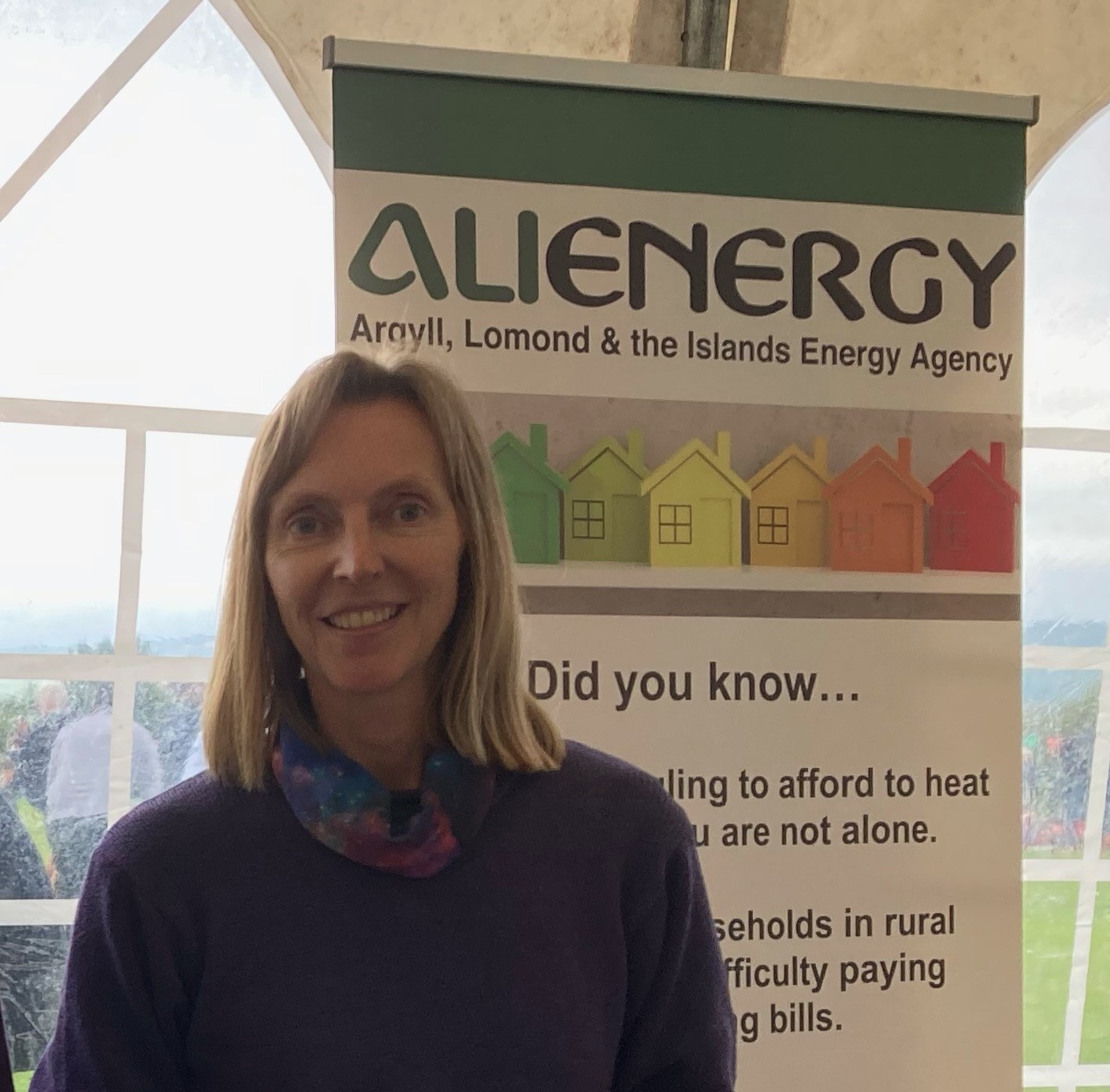Fuel poverty charity strikes wind farm deal for Argyll and Bute communities

Dr Lynda Mitchell, CEO of ALIenergy
Argyll, Lomond and the Islands Energy Agency (ALIenergy) has signed an agreement with renewable energy developer Galileo that will pursue opportunities to give local communities the chance to take a financial stake in Corr Chnoc Wind Farm.
The proposed 12-turbine scheme is located on land at Dunach Estate. Situated approximately 2km northeast of Kilmore and 5km east of the centre of Oban, Corr Chnoc Wind Farm will have a total generating capacity of up to 75 megawatts (MW). It will be supported by a battery energy storage system (BESS), with a storage capacity of up to 30MW.
A Memorandum of Understanding (MoU) has now been signed between Galileo, and Oban-based charity ALIenergy, seeking to deliver a financial vehicle that will allow the community to gain shared ownership of the wind farm. ALIenergy was established to ensure sustainable energy use and generation to benefit individuals, communities and the local community, and to combat fuel poverty.
The MoU will see the charity spearhead the establishment of a community financial vehicle (the Shared Ownership Vehicle), capable of investing in the wind farm and giving the community the opportunity to take an up to 10% stake in it.
The signing comes in advance of a meeting being held today at the Rockfield Centre In Oban, in which ALIenergy, The Resource Collective and Local Energy Scotland will update on local activities concerning community ownership of renewables that have been taking place since a previous meeting in February, and how Oban and Lorn could benefit. The Resource Collective is a social enterprise, providing advice, support and a voice for community and economic development in the Western Highlands.
By participating in shared ownership of the Corr Chnoc Wind Farm project, communities have the opportunity to share in a range of benefits, including developing a sustainable income stream over which they have control, creating strong partnerships, and building resilience in their local area.
Discussions have already been held with a number of community councils, including Kilmore and Kilbride and Taynuilt, which host the development, on the opportunities for shared ownership.
In addition to this, Galileo is supporting ALIenergy in applying to the Scottish Government’s Community and Renewable Energy Scheme (CARES), delivering the funding necessary to deliver the financial and legal expertise necessary to support the delivery of a shared ownership vehicle.
CARES is managed by Local Energy Scotland and offers a range of financial support to local energy projects.
The Scottish Government has set a community and local energy target of 2 GW of community and locally owned energy by 2030.
The opportunity for shared ownership is in addition to a Community Wealth Fund, which will give the local communities up to £15 million over the lifetime of Corr Chnoc Wind Farm, including delivery of a Renewable Electricity Discount Scheme (REDS). This will see those in closest proximity to the wind farm receiving a discount on their electricity bills.
Dr Lynda Mitchell, CEO of ALIenergy, said: “Shared ownership provides a tremendous opportunity for local communities to benefit from renewable energy developments, delivering everything from education initiatives, to addressing fuel poverty, and art and environmental programmes.
“These are projects that are not only important for the immediate future, but for the next generation too. Moreover, projects with a form of shared ownership are typically more closely bound to the local community where they operate.”
Cris Thacker, communications manager for Galileo, said: “We are delighted to have signed this MoU with ALIenergy. Through shared ownership of the wind farm, this will give the local community an incredible opportunity to deliver a sustainable income stream over which they have full control.
“We are keen to ensure that the local communities in which we operate benefit from our renewable energy projects and have held positive discussions with the local community councils in relation to both shared ownership and community benefit more generally, including the delivery of an innovative electricity discount scheme.”







